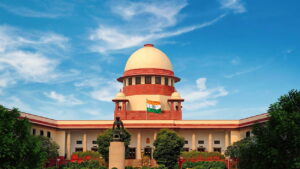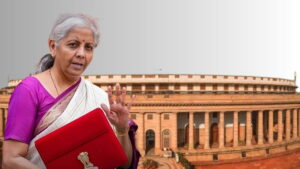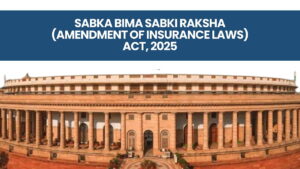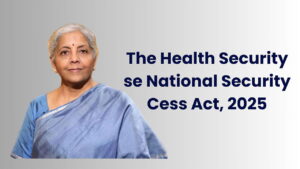In the architecture of India’s Constitution, the Comptroller and Auditor General of India (CAG) occupies a special place. Described by Dr. B.R. Ambedkar as “the most important officer under the Constitution,” the CAG is tasked with a function that goes to the very heart of accountable governance, auditing the use of public funds by the executive. But for the CAG to truly serve this role, independence from the very executive it audits is essential.
Today, there is growing unease about the way the CAG is appointed. Despite the constitutional promise of autonomy, the appointment process remains entirely within the executive’s control. Names are shortlisted internally within the government, typically by the Cabinet Secretary, and one name is sent by the Prime Minister to the President for approval. There is no statutory criteria, no open process, and no participation from other constitutional institutions like Parliament or the judiciary. This means the executive not only controls how public money is spent, but also chooses the authority that audits that spending. The result is a serious conflict of interest that runs contrary to the principle of checks and balances on which our Constitution rests.
This concern is not just theoretical. The credibility of the CAG depends not only on its constitutional status, but on public confidence that it is impartial, neutral and fearless. If there is even a perception that the CAG owes its position to the goodwill of the government it is meant to audit, then the impact of its reports, audits, and warnings is automatically weakened. Independence, both in appearance and reality, is a non-negotiable condition for institutions that are meant to hold power to account.
It is worth noting that while the Constitution vests the power of appointment in the President under Article 148, this power was never intended to be exercised at the sole discretion of the executive. The Constituent Assembly debates clearly reflect the intention that the CAG should have independence on par with the judiciary. The phrase “by warrant under his hand and seal” used in Article 148 is used only for appointments to the Supreme Court, High Courts, Governors, and the CAG, highlighting the special constitutional treatment envisaged for this role. However, this symbolic protection is undermined when the process of appointment lacks transparency and institutional checks.
The Constituent Assembly was deeply conscious of the need for strong institutional safeguards in matters of financial accountability. During the framing of Article 148, Dr. Ambedkar and other members emphasized that the CAG must function as an authority entirely free from executive pressure. The debates revealed a deliberate intent to place the CAG on the same pedestal as the higher judiciary. Articles 149 to 151 further define the duties, powers, and reporting mechanisms of the CAG, reinforcing the office’s critical role in auditing public expenditure and laying reports before the legislature. These provisions were framed to ensure that the CAG could operate without fear or favour, shielded from the administrative structure it is meant to oversee. The framers clearly understood that without an independent mechanism of appointment, the office would remain structurally compromised, regardless of its formal powers.
In a recent judgment in the case of appointment of the Chief Election Commissioner, the Supreme Court recognized the need for an independent and multi-institutional selection committee. It held that the selection of such high constitutional functionaries must not be left to the unregulated discretion of the executive. The logic of that ruling applies with equal, if not greater, force to the CAG. Both institutions are intended to be independent constitutional authorities, free from political influence, and both play a key role in maintaining the democratic balance between different arms of the State.
The role of the CAG as the guardian of public finance cannot be overstated. It audits government expenditure at every level, ensures that funds are spent lawfully and efficiently, and submits reports to the legislature which often form the basis of serious parliamentary scrutiny. Any weakening of this office dilutes the quality of democratic oversight. Without a fearless and independent auditor, the system of financial accountability collapses. This is not just about accounting, it is about the health of India’s democratic institutions.
There is also a pressing need to adopt a statutory framework for the appointment of the CAG. The absence of legal safeguards makes the process vulnerable to opacity and political preference. A fair and constitutionally compliant process could involve a selection committee comprising the Chief Justice of India or their nominee, the Speaker of the Lok Sabha, the Chairperson of the Public Accounts Committee, the Leader of the Opposition, and other relevant constitutional stakeholders. Such a framework would ensure that appointments are made on the basis of merit, competence, and integrity, rather than executive discretion.
There is a growing public expectation that this appointment should not become just another routine bureaucratic exercise, but a moment to restore the constitutional balance. India’s democracy depends not only on free elections but also on strong institutions. An independent CAG is one of the pillars that keeps the executive accountable and public finances transparent. Allowing its appointment to take place in a non-transparent and arbitrary manner would not just be a violation of the constitutional scheme, it would be a blow to the very idea of responsible governance. It is time to recognize that independence is not something institutions merely claim, it must be built into the processes that create them.
The CAG must be, and must be seen to be, above political and administrative influence. Anything less is a compromise India cannot afford.






